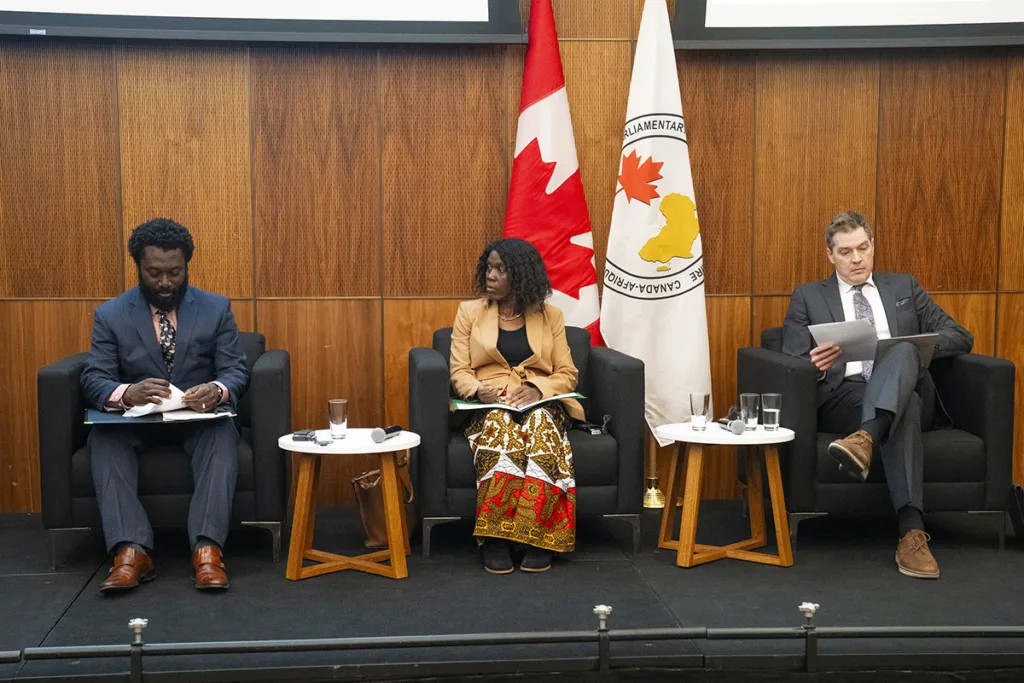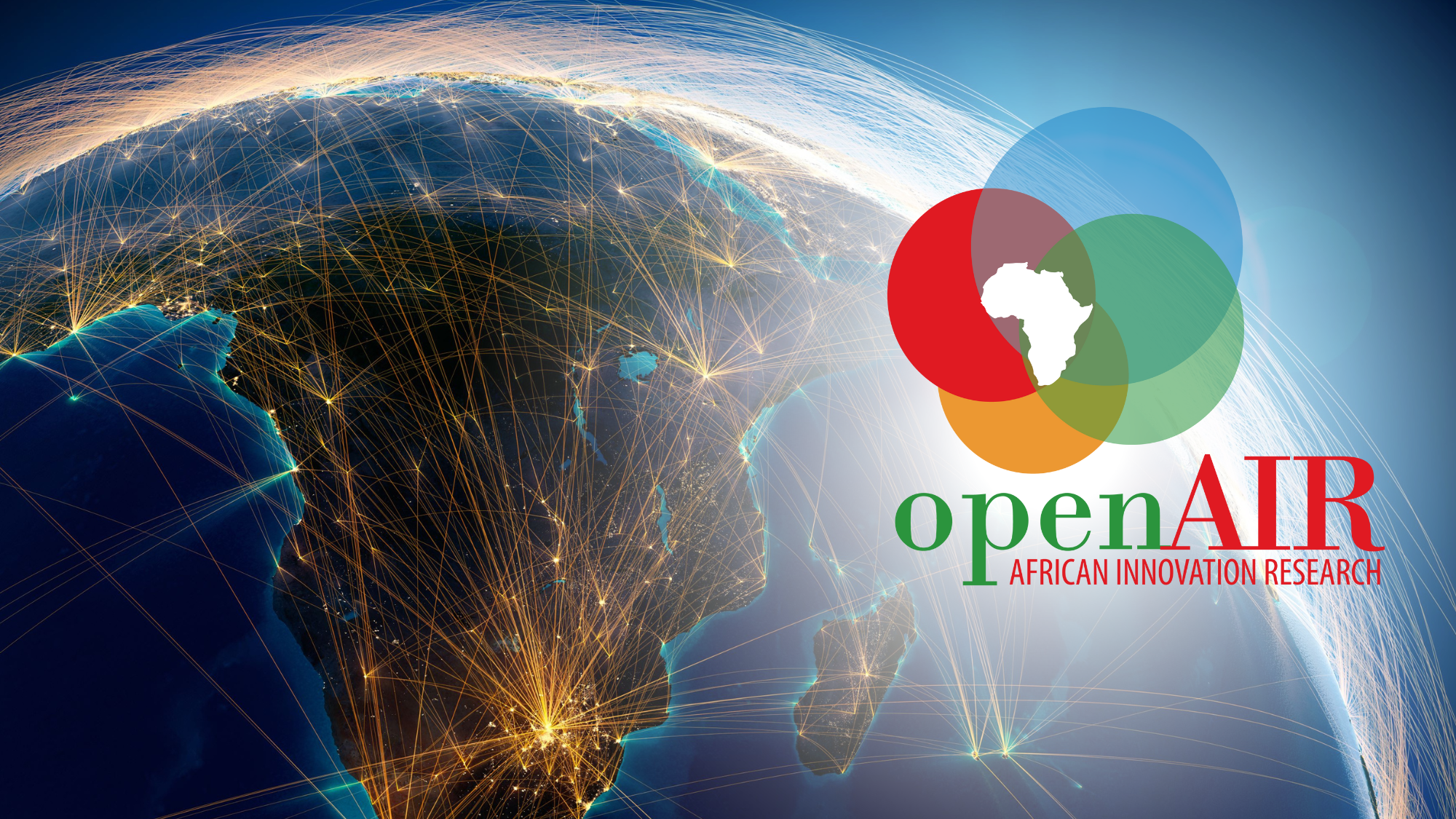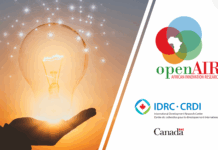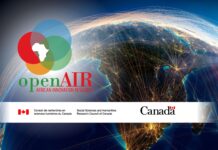By Jeremy de Beer and Yvonne Ndelle
The recent conference hosted by the Canada Africa Parliamentary Association (CAAF) served as a pivotal platform for discussing and strengthening the dynamic relations between Canada and Africa. The Honourable Amina Gerba, Senator, and Mr. Micheal Coteau, MP, Co-Chairs of CAAF, provided the introductory and welcome remarks to officially kick-start the event.
CAAF, comprising Canadian parliamentarians who engage with African counterparts to promote mutual interests and foster ties, plays an essential role in shaping Canada’s diplomatic engagements and understanding of diverse issues pertaining to the African continent. The conference featured insights from three distinguished speakers, including Professor Jeremy de Beer of the Open African Innovation Research network (Open AIR), Professor Edward Ansah Akuffo from the University of the Fraser Valley, and Ms. Susan Namulindwa, Executive Director at the Africa Trade Desk.

Kicking off the discourse, Prof. Akuffo asserted that for the most part, Africa has never been a foreign policy priority of Canadian governments, as the continent has always been widely perceived as poor and conflict-ridden. For over six decades, Canada has largely failed to clearly define and articulate its national interests in Africa and project a clear commitment and long-term engagement in the region, in a comprehensive and coherent manner. A Canada-Africa strategy, he explained, should position Canada as a key security, development and diplomatic partner on the continent.
Ms. Susan Namulindwa, for her part, spoke about the ongoing economic transformation in Africa and the role of Canada from the perspective of entrepreneurs. Her message was simple and clear – Canada is not doing enough on the continent, nor does it consider Africa a high priority. In her view, Canada’s engagement in Africa is ‘random’ and ‘sporadic’.

Prof. de Beer, Co-Founder of the award-winning Open AIR network and Professor of Law at the University of Ottawa, brought a message of optimism and enthusiasm about the future of Canada-Africa relations to the discourse. His stance and remarks hinged on his experience of over nearly two decades with Open AIR, where the core focus has been on recognizing and strengthening Africa’s role in the 21st century global knowledge economy, and helping to position Canada as a key partner in that endeavor. He described the research network as a familial partnership, a network of networks and a community of practice that connects dozens of researchers at academic institutions in each major geographic region of the continent.
Open AIR’s portfolio of activities are pivotal to ensuring Canada’s sustained engagement in Africa. According to Prof. de Beer, the network is extraordinarily passionate about the next generation of emerging leaders on and/or from the African continent. The partnership’s New and Emerging Researchers Group, fondly referred to as NERGS, attests to this passion. This group, simply thought of as thought leaders, consists of over 130 undergraduate, masters, doctoral, and postdoctoral associates, with 95% of them coming from groups traditionally underrepresented in research, such as women and racialized Black individuals from the continent, its diaspora, or Canada. Open AIR strongly believes that nurturing this new generation of thought leaders, with emphasis on diversity and inclusion, is crucial to the immediate and long-term future of Canada-Africa relations.
In terms of practical research, Open AIR’s empirical or boots-on-ground research examines the collaborative dynamics of innovation in multiple thematic areas. Professor de Beer discussed the network’s projects in digital agriculture, biomedical research including local mRNA vaccine research, clean energy technologies, artificial intelligence and data governance. These initiatives are not only central to technological and economic advancements, but also for achieving Sustainable Development Goals such as food security and health. Open AIR’s work with Indigenous and local communities across the continent also validates and values traditional knowledge governance systems. He sees this as one way to help Canada in its own reconciliation and decolonization efforts; areas where many African nations are ahead despite facing enormous challenges. Across these themes, Open AIR is radically challenging stereotypes about African innovation and flipping conventional narratives of development, by emphasizing that in many cases Canada has much more to learn from its counterparts on the African continent than to teach.
Another reason for optimism relates to the policy changes that the network is supporting on the African continent. He highlighted how the network’s findings are being used to shape policies in areas such as artificial intelligence, data governance, and the African Continental Free Trade Area (AfCFTA). This approach reflects Open AIR’s commitment to action research—creating knowledge with innovation practitioners and policymakers to drive real-world policy changes.
Africa is also on the cusp of monumental economic policy transformations. According to Prof. de Beer, the AfCFTA is central to the continent’s economic power and a primary reason Canada must engage very seriously. Once implemented, it will be the world’s largest free trade area by population and, potentially, by economic clout. Based on Open AIR’s extensive strategic foresight research exploring scenarios for the future, it is entirely plausible that the AfCFTA is today what the European Union was just a few generations ago. He, therefore, believes if Canada and the rest of the world are willing to look just a few generations into the future, they will see a continent of even greater economic importance and geopolitical power than it already is. The AfCFTA can be a key driver of that future.
Open AIR’s work of supporting people, studying practices, and shaping policy is empowered by funders who share its vision, notably, the International Development Research Centre (IDRC), Social Sciences and Humanities Research Council (SSHRC), Rideau Hall, Universities Canada, and its academic institutional partners, including the University of Ottawa. Their support is instrumental in empowering the network’s research and policy advocacy effort
Closing the discourse, the Honourable Robert Oliphant, Parliamentary Secretary, highlighted Africa’s constantly changing nature and the fact that old areas of development are no longer going to work. His clarion call is for a Canada-Africa framework void of any mistakes. In his own words, his goal is a framework that has both strength and humility, passion and compassion, but principally led by Africa with Canada simply listening.










